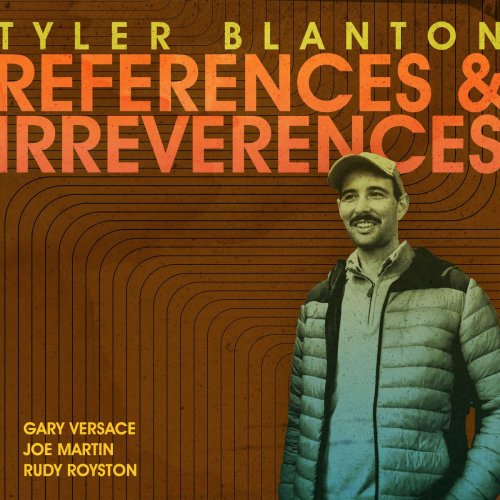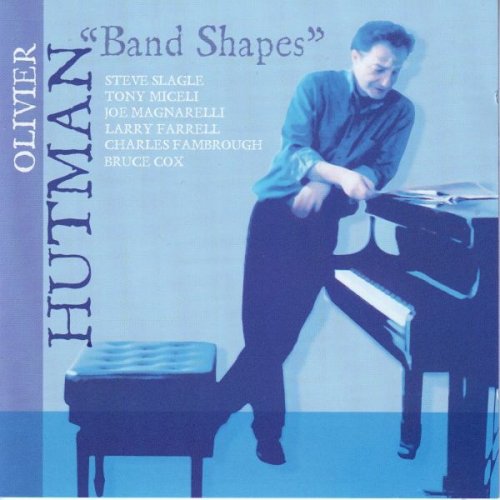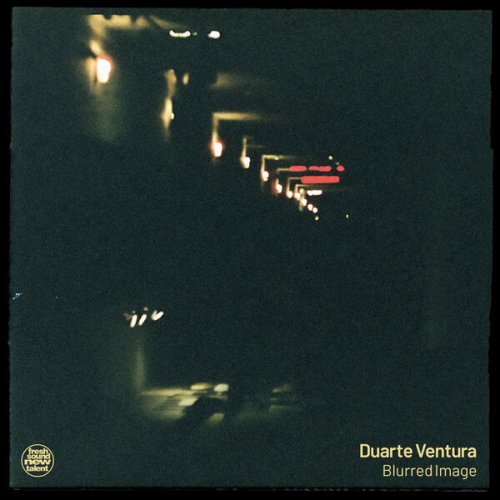Tyler Blanton - References & Irreverences (2024) Hi-Res

Artist: Tyler Blanton
Title: References & Irreverences
Year Of Release: 2024
Label: Destiny Records
Genre: Jazz
Quality: FLAC (tracks) / FLAC 24 Bit (48 KHz / tracks)
Total Time: 45:13 min
Total Size: 276 / 545 MB
WebSite: Album Preview
Tracklist|Title: References & Irreverences
Year Of Release: 2024
Label: Destiny Records
Genre: Jazz
Quality: FLAC (tracks) / FLAC 24 Bit (48 KHz / tracks)
Total Time: 45:13 min
Total Size: 276 / 545 MB
WebSite: Album Preview
01. West Highlands
02. '70s Villain
03. Personhole Cover
04. Faashin
05. Brooding Linda Evans
06. Most Vertebrate Offspring
07. Rockford Brown
08. Old Folks
Imagine you’re the covert spy of decades past. Navigating the criminal underground and its mosaic of cigarette smoke and polyester, it’s all you can do to hold on to a sense of purpose, knowing that at any moment, the hunter could become the hunted. Such is the feeling 70s Villain, one of many highlights in Tyler Blanton’s latest foray.
On References & Irreverances, Blanton’s fourth leader date and his second for Destiny Records, the New York City-based vibraphonist bottles such feelings in a flight of eau de parfum concentrations. His panache for striking the right mood is reflected in quirky titles like Brooding Linda Evans and Person Hole Cover. That said, such descriptors are merely doorways into listeners’ own ways of connecting to the material at hand. The latter tune, for example, despite its nod to an all-too-canny George Carlin bit about the absurdity of our linguistic revisionism (“manhole cover” being no longer politically correct), has little to do with the execution of the concept in musical form. If anything, these vignettes of popular culture and personal experience are like sparks fanned by Blanton’s eminently cognizant bandmates. This is clearest in West Highlands, a nod to his West Highland Terrier that hits the ground running. Pianist Gary Versace takes an early solo in this opener, showcasing his own gift for telling it like it is in a culture that too often curtails that impulse. The rhythm section of bassist Joe Martin and drummer Rudy Royston sinks its teeth deep enough into this groove to reach bone, throwing Blanton’s brilliant interweaving of clean and gritty textures into relief.
As a student of his instrument, Blanton places himself in the lineage of Milt Jackson, Bobby Hutcherson, and lesser-knowns like Mike Mainieri. In terms of process, he defers to visionaries like Carla Bley, Steve Swallow, and John Scofield in his penchant for shunning the pitfalls of overproduction in favor of jumping into a studio as fresh as possible. Indeed, engineer George Shalda (who worked on this album’s 2019 predecessor, Sense of Place) allows the instruments to speak as they are.
The eclecticism that drives Blanton’s professional and creative life is remarkable. As well versed in Brazilian and straight-ahead jazz as in electro-funk and modern diversions, he refuses to follow trending lines. The overall effect is a melodic and robust pushback against the dominant aesthetic of his generation. Rather that operate under the false pretentions of some grand narrative, he allows himself to have fun while being honest and vulnerable. And so, even when he points to beacons of canonical importance, as in Faashin (an anagram of “Isfahan”), he does so without ignoring the messy order—if not the orderly messiness—of things. In Most Vertebrate Offspring (a contrafact of “All God’s Chillun Got Rhythm”), Martin’s hip stylings court humble support from Royston, while Versace’s colorful moves draw Blanton into a playful game of cat and mouse. And in Rockford Brown, the quartet runs through city streets it knows like the back of a proverbial hand. If anything, the songs on References & Irreverences influence each other, falling into place as they should from one to the next. Like a ridges potato chip, the peaks make way for the valleys to catch plenty of emotional dip.
Rather than go out with a bang, Blanton ends bittersweetly with Old Folks, a standard ballad by Willard Robinson and Dedette Lee Hill and the only non-original of the set. By letting the notes breathe, he allows each musician’s contributions to shine in their own shade of blue. Such nakedness is refreshing amid today’s technical maelstrom. This is jazz from the gut and may just deliver the punch you’ve been looking for to yours.
On References & Irreverances, Blanton’s fourth leader date and his second for Destiny Records, the New York City-based vibraphonist bottles such feelings in a flight of eau de parfum concentrations. His panache for striking the right mood is reflected in quirky titles like Brooding Linda Evans and Person Hole Cover. That said, such descriptors are merely doorways into listeners’ own ways of connecting to the material at hand. The latter tune, for example, despite its nod to an all-too-canny George Carlin bit about the absurdity of our linguistic revisionism (“manhole cover” being no longer politically correct), has little to do with the execution of the concept in musical form. If anything, these vignettes of popular culture and personal experience are like sparks fanned by Blanton’s eminently cognizant bandmates. This is clearest in West Highlands, a nod to his West Highland Terrier that hits the ground running. Pianist Gary Versace takes an early solo in this opener, showcasing his own gift for telling it like it is in a culture that too often curtails that impulse. The rhythm section of bassist Joe Martin and drummer Rudy Royston sinks its teeth deep enough into this groove to reach bone, throwing Blanton’s brilliant interweaving of clean and gritty textures into relief.
As a student of his instrument, Blanton places himself in the lineage of Milt Jackson, Bobby Hutcherson, and lesser-knowns like Mike Mainieri. In terms of process, he defers to visionaries like Carla Bley, Steve Swallow, and John Scofield in his penchant for shunning the pitfalls of overproduction in favor of jumping into a studio as fresh as possible. Indeed, engineer George Shalda (who worked on this album’s 2019 predecessor, Sense of Place) allows the instruments to speak as they are.
The eclecticism that drives Blanton’s professional and creative life is remarkable. As well versed in Brazilian and straight-ahead jazz as in electro-funk and modern diversions, he refuses to follow trending lines. The overall effect is a melodic and robust pushback against the dominant aesthetic of his generation. Rather that operate under the false pretentions of some grand narrative, he allows himself to have fun while being honest and vulnerable. And so, even when he points to beacons of canonical importance, as in Faashin (an anagram of “Isfahan”), he does so without ignoring the messy order—if not the orderly messiness—of things. In Most Vertebrate Offspring (a contrafact of “All God’s Chillun Got Rhythm”), Martin’s hip stylings court humble support from Royston, while Versace’s colorful moves draw Blanton into a playful game of cat and mouse. And in Rockford Brown, the quartet runs through city streets it knows like the back of a proverbial hand. If anything, the songs on References & Irreverences influence each other, falling into place as they should from one to the next. Like a ridges potato chip, the peaks make way for the valleys to catch plenty of emotional dip.
Rather than go out with a bang, Blanton ends bittersweetly with Old Folks, a standard ballad by Willard Robinson and Dedette Lee Hill and the only non-original of the set. By letting the notes breathe, he allows each musician’s contributions to shine in their own shade of blue. Such nakedness is refreshing amid today’s technical maelstrom. This is jazz from the gut and may just deliver the punch you’ve been looking for to yours.
![Rhythm Shaw - Nothing To Lose (2026) [Hi-Res] Rhythm Shaw - Nothing To Lose (2026) [Hi-Res]](https://www.dibpic.com/uploads/posts/2026-03/1772508812_cover.jpg)
![Chad Lefkowitz-Brown - City Spirit (2026) [Hi-Res] Chad Lefkowitz-Brown - City Spirit (2026) [Hi-Res]](https://www.dibpic.com/uploads/posts/2026-02/1772171883_y3mc4z2lmsr7a_600.jpg)


![Anaïs Mitchell, Hadestown Original West End Cast - Hadestown Live From London (Bonus Track) (2026) [Hi-Res] Anaïs Mitchell, Hadestown Original West End Cast - Hadestown Live From London (Bonus Track) (2026) [Hi-Res]](https://img.israbox.com/img/2026-03/02/pyxmwd7tv9pde1c102p9df24t.jpg)


![Rick Braun - Intimate Secrets (1992) [CDRip] Rick Braun - Intimate Secrets (1992) [CDRip]](https://www.dibpic.com/uploads/posts/2026-03/1772427179_5.jpg)
